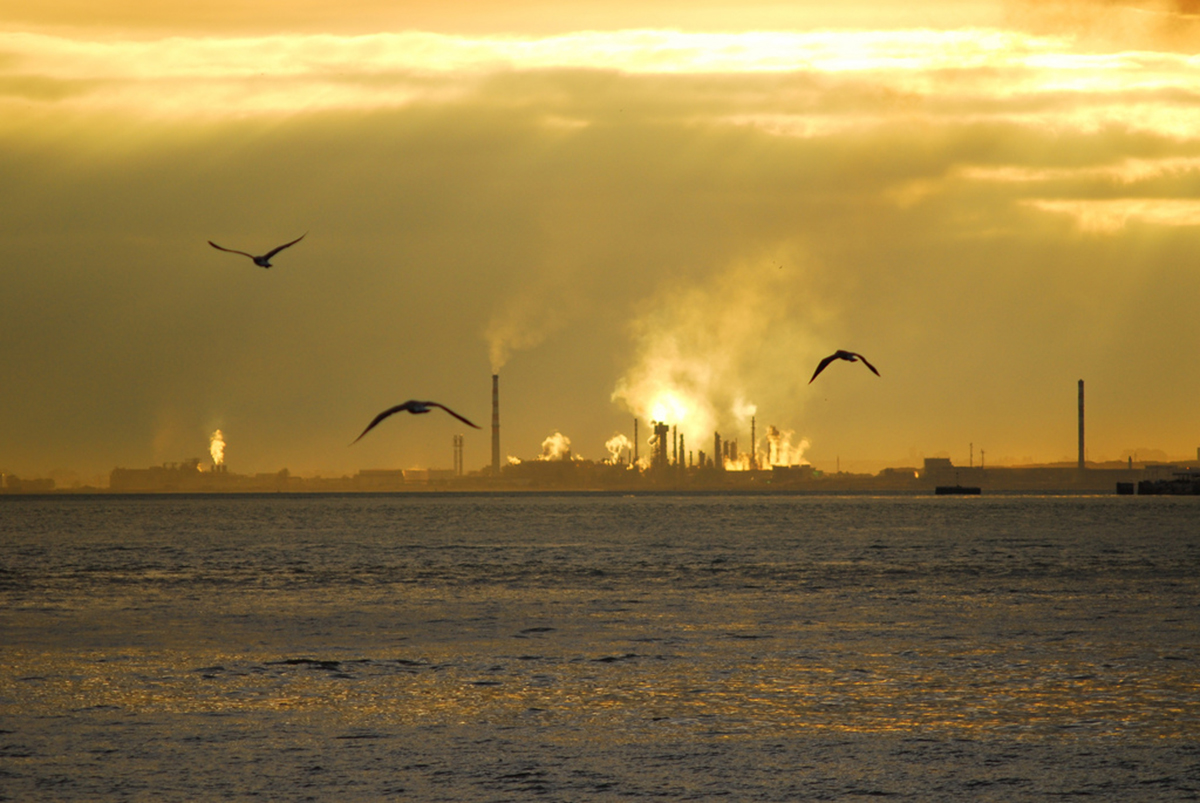Table of Contents
It probably won't come to a surprise to anyone that particulate matter is related to lung cancer. Tiny particles can pick up carcinogenic chemicals and carry them deep into the lungs. These tiny particles, whether not someone smokes cigarettes, can cause changes in DNA that lead to cancer, and may explain why most people who smoke don't get cancer and some people who don't smoke nonetheless get the disease. However, it isn't just lung cancer that can becomes more common with exposure to particulate matter.

Between 1998 and 2011, researchers in Hong Kong enrolled residents over the age of 65 to study the relationship between exposure to fine particle pollution (from buses, cars, boats, power plants, and industrial activity) and cancer. The research team used 13 years of satellite data to calculate cumulative exposure to particulate matter. In older people, cancer tends to emerge as the result of cumulative exposure to carcinogens; the more carcinogens that have gone into your body, the more likely you are to get cancer. The researchers confirmed that the cancer-causing effects of small particle air pollution on cancer are cumulative. For every 10 micrograms per cubic meter average particulate matter pollution to which Hong Kong residents were exposed, there was a:
- 22 percent greater risk of developing some kind of cancer,
- 40 percent greater risk of developing esophageal cancer, and, in women,
- 80 percent greater risk of developing breast cancer.
In fact, it wasn't just cancer that was more common with more exposure to particulate pollution. Researchers on this team also found that exposure to soot, smoke, engine exhaust, and other fine particulate matter increased risk of:
- Heart disease. Exposure to fine particles, particles the size of germs, activates the immune system. The white blood cells that attack germs also feed on cholesterol, so increased immune system activity can result in greater atherosclerosis.
- Peptic ulcer disease. Exposure to particulate matter pollution increases the risk of stomach ulcers although not intestinal ulcers. People who lived in parts of Hong Kong where pollution was greater had up to a 53 percent greater risk of having to be hospitalized for gastric ulcers.
- Influenza and pneumonia. On days when there was the most particulate matter in the air, the greatest numbers of people over 65 had to be hospitalized for pneumonia or flu.
- Hospital admissions for any reason. All illnesses are made worse by high levels of air pollution, but the effects are greater for higher-income families than for lower-income families. The researchers found that spikes in air pollution had less of an effect on health outcomes for families living on less than $250 a month, which is to say, in poverty. Of course, this could be because they are sick all the time. However, the highest-income families in Hong Kong suffered the greatest increases in illnesses when particulate matter levels spiked.
Particulate air pollution can even effect the unborn. All over the world, except in the United States, data find a relationship between cumulative exposure to particulate air pollution and low birth weight. Exposure to this form of air pollution during part of the pregnancy is bad, but exposure during the entire pregnancy is worse. In the United States, ozone is a greater factor in low birth weight babies than particulate pollution; however, American cities have made considerable progress in controlling this form of pollution.
READ 5 Shocking Sources Of Indoor Air Pollution And How To Get Rid Of Them For Good
If you are like four out of five of the world's city dwellers and you live in a region where this form of bad air can hurt your health, what can you do?
- It's especially important to take precautions during pregnancy in China, India, the Middle East, and North Africa. Prevailing winds carry soot and smoke from China and India westward almost to the eastern coast of North America. Anywhere in this zone, it is healthier to get a pregnant woman out of any city. Low birth weight babies are up to 250 percent more common in the most polluted parts of China.
- The more you avoid wood fires, commercial kitchens (especially those that cook meat over wood), kerosene lamps, and exposure to diesel exhaust, the better it will be for your overall health, no matter where you live in the world.
- It's never too late to make a difference. Exposure to particles in the air is cumulative. If you stop the exposure, your condition at least doesn't get worse. Breathe the cleanest air you can and choose the cleanest locations you can for optimal health.
- Wong CM, Lai HK, Tsang H, Thach TQ, Thomas GN, Lam KB, Chan KP, Yang L, Lau AK, Ayres JG, Lee SY, Chan WM, Hedley AJ, Lam TH. Satellite-Based Estimates of Long-Term Exposure to Fine Particles and Association with Mortality in Elderly Hong Kong Residents. Environ Health Perspect. 2015 Nov.123(11):1167-72. doi: 10.1289/ehp.1408264. Epub 2015 Apr 24. PMID: 25910279
- Photo courtesy of andrijbulba: www.flickr.com/photos/andrijbulba/5891154396/
- Photo courtesy of fhmira: www.flickr.com/photos/fhmira/2955984656/
- Photo courtesy of fhmira: www.flickr.com/photos/fhmira/2955984656/
- Infographic by SteadyHealth.com
- Photo courtesy of


Your thoughts on this